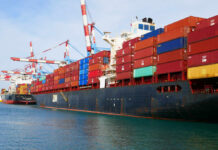
On Saturday, a drone strike successfully hit an Israeli-linked chemical tanker off the coast of India. Israeli media is suggesting that Iran is directly responsible for the strike, but no one has officially claimed responsibility.
There have been a series of drone and missile assaults in the region recently by Yemen’s Iran-backed Houthis who have been targeting crucial shipping routes in the Red Sea and the Gulf of Aden.
The Pentagon reported on Friday that the Houthis have executed over 100 drone and missile attacks where they’ve targeted ten merchant vessels in the Red Sea. The group claims to support the Palestinian cause in Gaza and cites Israel’s conflict with Hamas as the reason for their hostility.
Chemical tanker 'is hit by drone from Iran off the coast of India – as Tehran threatens to close Strait of Gibraltar and Mediterranean sea unless Israel stops bombing Gaza https://t.co/Eel6FdZwHB pic.twitter.com/vJc5yoWrdE
— Daily Mail Online (@MailOnline) December 24, 2023
The attack took place 120 miles southwest of the Indian port of Veraval. When the strike occurred, the ship immediately caught fire. Crews rushed to extinguish the flames before anyone could be harmed, but there was structural damage to the tanker that caused the ship to take on water.
The Indian news agency ANI identified the targeted ship as MV Chem Pluto, a tanker that transports crude oil from Saudi Arabia. ANI reported that the tanker had approximately 20 Indian nationals on board. Various shipping sources identify Chem Pluto as owned by a Japan-based company.
Kan 11 broadcaster in Israel reported that this marks the first assault on an Israeli-linked vessel in open waters. Authorities suspect that the drone responsible for the strike was launched directly from Iran.
Given the close proximity to Veraval, Israeli authorities suggest that it’s unlikely the attack originated from Houthi-controlled regions in Yemen.
Following the attack, the Indian Navy stated that it promptly responded to a request for assistance. They released a statement saying, “Indian Navy had dispatched an aircraft, which arrived overhead the MV (merchant vessel). Safety of the crew and ship was ascertained. A warship has also been dispatched to provide any assistance as required.”
International shipping companies are already having to reroute their cargo, leading to additional costs for extra crews, fuel, supplies, port charges and other expenses, not to mention higher insurance premiums.

























